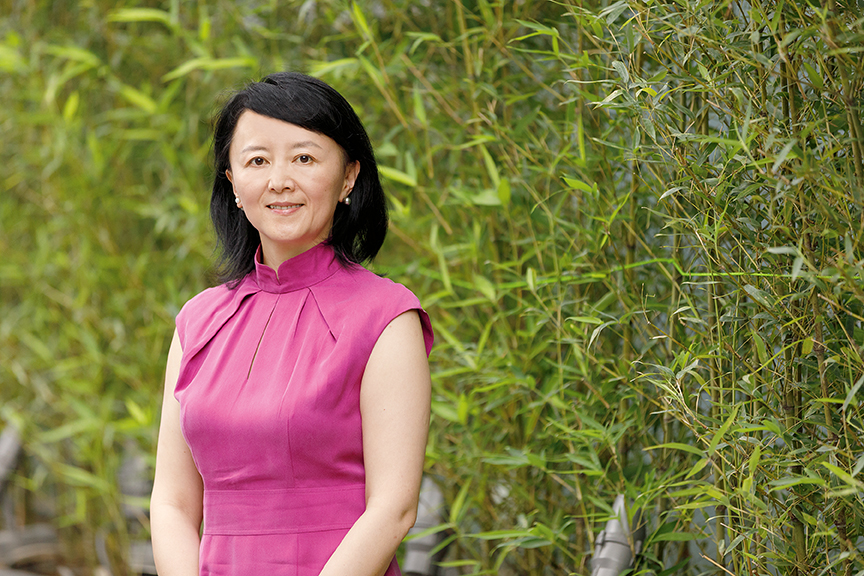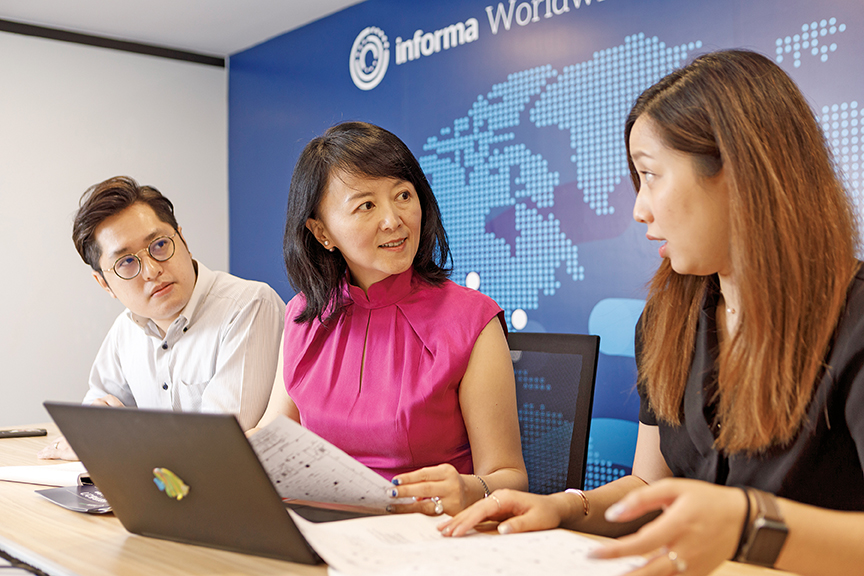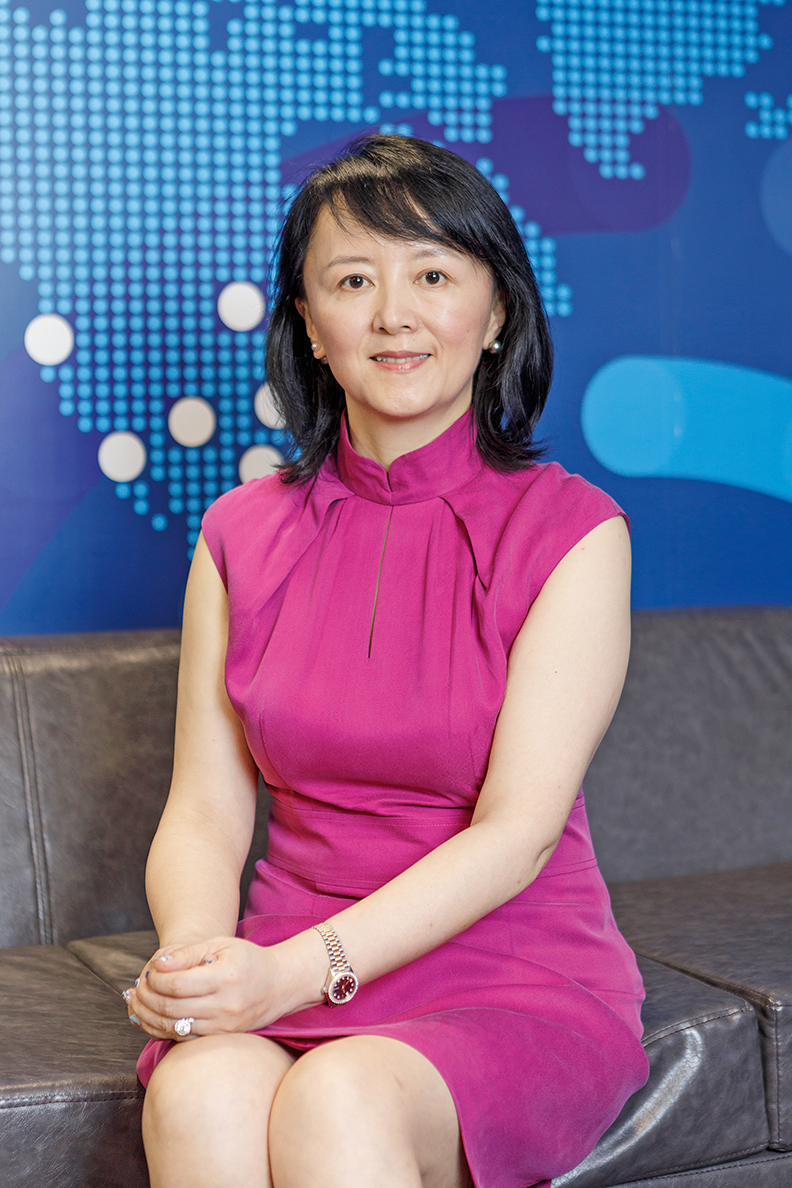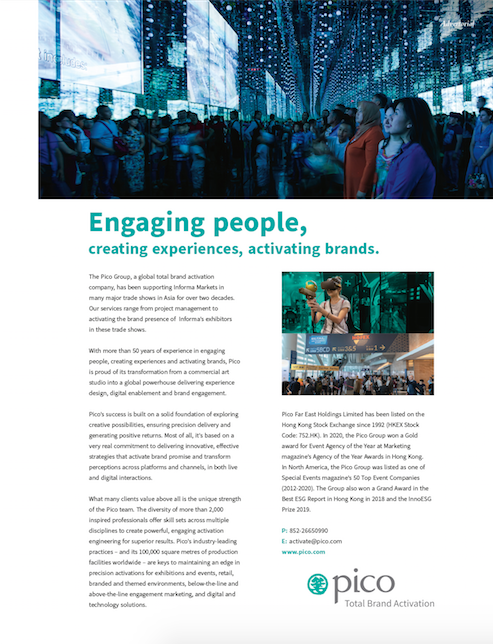Margaret Connolly says she joined the trade show industry through what she calls serendipity. In 2008, she was on maternity leave while employed in a senior management position with the logistics giant TNT.

A friend from B2B event organiser UBM asked if she’d take a look at an acquisition deal the company was pursuing in Beijing and potentially join UBM to manage the joint venture. The due diligence was mostly completed, but Margaret recommended they walk away from the deal.
“Although there wasn’t any new business to integrate, UBM still wanted me to join the company, so I did,” she recalls. “Initially, my job description was blank because tech media, at the time, hadn’t really entered Asia. I was just one person who borrowed a desk from a sibling company in Shanghai. It was a startup, so I needed to build out the team and build out the business, quickly.”
Margaret set up a bare-bones management team comprising top talent who shared the same excitement and commitment. Most of these founding members are still with the business today.
The next step involved putting together a sustainable, profitable portfolio, but rather than leaning excessively into print and online media, the fledgling business moved towards the live event space, from game developers’ conferences to call centre awards, covering multiple verticals and geographic markets.
Margaret noticed the real magic of live events doesn’t only manifest in the thought leadership and professional networking, but also in lead generation for small and medium-size enterprises, matching them with many qualified buyers.
What i love about my job – even today – is that entrepreneurial spirit.
She led several successful acquisitions in China and Turkey in parallel to the organic development to achieve expanded presence in Shanghai, Beijing and Shenzhen, covering multiple verticals. The business became an integral part of UBM Asia.
“I thoroughly enjoyed running the startup within this multinational infrastructure,” she reflects. “What I love about my job – even today – is that entrepreneurial spirit. Even though the Asia business has grown quite a lot, we need to stay agile and continue to foster win–win partnerships.”
A decade after she joined UBM, the company was acquired by Informa in 2018, leading to the creation of Informa Markets, the ‘world’s leading exhibitions organiser’. The combination of existing infrastructure offered more potential to expand in Asia, with the two companies merging to create a definitive leader across several verticals.
Margaret believes each side brought its best to the table. “We do have quite a bit in common in terms of company culture and guiding principles,” she says.

“We’re fairly light on our feet. We aim to be flexible and practical as much as possible, so we can act on opportunities in Asia that are coming up in many different markets, in different shapes and forms. We do what’s best for the business and for our customers without being too clunky and bureaucratic. Through the acquisition, we advocated for keeping that essence and we’ve been successful in that.”
That culture, says Margaret, is one that she’s seen grow from the start and, through the years, a lot of young talent has entered the business. She’s particularly proud of the way that talent has been nurtured, as she has been by senior management in both UBM and Informa.
Emerging leaders are today given experience on the front line, forming a perspective that existing leadership may not have, while also getting opportunities to take an active hand in new ventures.

“I used to travel from the offices to hold informal lunches with team members, specifically targeting new team members who joined the company within the last 12–24 months,” Margaret explains.
“What happened in 2020, because we couldn’t meet in person, is we changed it to a virtual format. We rotate through the geography and listen to those who joined most recently.
“It’s critical to have a closer dialogue with new team members directly, without the layer of managers being present. I find that to be tremendously helpful and always come up with a short list of key action items; things that we should pick up. Some are quick fixes to improve the processes, some are to facilitate internal collaborations and some are simply excellent business ideas.”
Of course, COVID-19 has created an understandably challenging time for the live event space. But thanks to China’s rapid response to the global pandemic, Informa Markets has been up and running in China since June, while more recently running events in Tokyo, Bangkok, Kuala Lumpur and Taipei.
We aim to be flexible and practical as much as possible, so we can act on opportunities.
However, many international exhibitors and buyers are still unable to physically attend events due to travel restrictions. Informa Markets is moving into digital innovations at speed to connect the international suppliers and buyers with local communities.
Some teams in Asia are quite ahead in digital and the company has seen increasing adoption during the coronavirus pandemic. “As part of that hybrid program, we have now relocated the team resources to enhance our service offerings,” Margaret says.
“For example, the traditional event operation has become a hybrid operations team, including live events where we can trade, but also digital online events in various formats, from small webinars to full-featured virtual festivals.
They support these events operationally, setting up the studio, facilitating rehearsals, and making sure the online events go off smoothly and professionally.
“Hybrid is here to stay and the key is the success and long-term prosperity of the SMEs. Now, many are under tremendous pressure because of cash flow and because live events can’t take place. Unlike bigger companies, smaller businesses have fewer resources and less experience in online channels. I think we have a duty to work with industry associations and local governments to help SMEs. Startups today could be the backbone of the industry tomorrow. “And as SMEs become stronger in many of these verticals, our business also becomes stronger.”
Proudly supported by:




